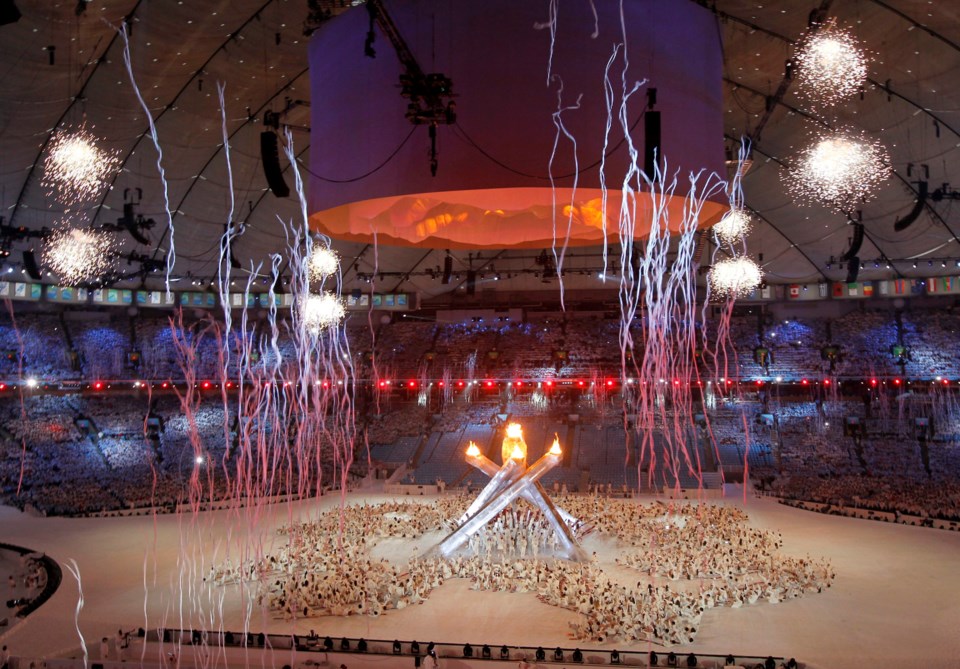ZHANGJIAKOU, China ‚Äî The Vancouver Olympics created unprecedented enthusiasm for amateur sport in Canada. But since 2010, corporate funding has dwindled, and sports federations say they have to work very hard for Canadian athletes to compete among the world's best at the international level.¬Ý
Several of those sports federations feel Vancouver must secure the 2030 Olympics in order to give a second wind to private investment.
“Canada thinks differently from other countries, which rely on major corporate sponsorships,” said Jean-François Rapatel, the director of high performance at Snowboard Canada. "Having the Games in Canada is what wakes people up, and businesses, what excites them. They realize that this is an opportunity for the country to do well.
"I was with Alpine Canada from 2005 to 2013. I saw the effect that Vancouver 2010 had. Sponsors showed up, everyone wanted to be involved in one way or another. We learned from that, but we did not learn to fill the gap that exists, to extend that over time."
For some federations, the drop in the past 12 years is significant.¬Ý
Freestyle Canada estimates its corporate funding this year represented 30 per cent of what it received in 2010. Nordiq Canada, the body that governs cross-country skiing in the country, reported similar figures.¬Ý
Peter Judge, the CEO of Freestyle Canada, says the decrease in corporate investment has a direct impact on how the federations operate, and subsequently on the development of the next generation of athletes. ¬Ý
He believes a possible Vancouver Games in 2030 could revive the commitment to invest in athletes, their stories and their exploits.
But the apparent disinterest from the corporate world can also be blamed on a series of decisions made by the sports authority responsible for the Olympic Games, according to a private business group that supports Olympic athletes.
“I would say that for the last four or five years, we have all been victims of the bad decisions of the International Olympic Committee (IOC)," said Dominick Gauthier, the co-founder and director of operations of B2ten. "People are exasperated. We felt it a lot before these Beijing Games. Even people who are passionate about sports, like me and the people around me, are starting to ask serious questions. We also feel it in people who are not part of this Olympic movement, people who watch us on TV or who read our stories. There is a very big exasperation.
"It was taken to another level with the Games in China, the doping cases, etc. Every day I wake up wondering what more bad news will be thrown our way. I want to talk about the positives, but it's not always easy.”
Another reason support may be dwindling: corporations looking to invest in Canadian sport federations are more careful about how they choose to align their brand, says the CEO or Nordiq Canada.
“As with the rest of society, there is greater attention to environmental values, social causes, good governance," said Stéphane Barrette. "When we solicit sponsors or potential donors, these are themes that are more and more dear to them. They ask a lot of questions. They want to make sure that if they support a national federation, it will have very high ethical values."
Barrette also adds the battle for corporate sponsorship between amateur and professional sport constantly remains at play, with amateur sport losing ground.
‚ÄúSeveral reports show it: amateur sport has lost a little more market share compared to professional sports over the last four or five years," said Barrette.¬Ý
The Canadian Olympic Committee (COC) has fared better than most federations since Vancouver 2010, allowing it to give back to national sport federations.
"It's more of a growth that has taken place since 2010 with our partners," says Eric Myles, the COC's chief sport officer. "The important thing is that it doesn't just go to the COC. Yes, we had an increase, but there has been an increase in our ability to help and work with the federations since 2010."
Myles says the COC has helped various federations with their marketing strategies or business development.
“Ninety-five per cent of our assets are all investments that return to the sporting world," he said. "Some go through 'Own the Podium' and target more high performance, but there is also a lot of support work with the federations that is being done."
Myles agrees with the Canadian sports federations that hosting the Olympics in 2030 would be beneficial for all.
“Yes, hosting Games is very important for various reasons, not only at the corporate level," he said. "First, all the enthusiasm that it generates – we have just seen it with two Olympics held very close together – at the level of the population, with young people. Then, the corporate side and the commitment of governments... the Games drive that.
“We still benefit today from the funds that were created after Calgary (1988) and Vancouver. So, yes, this candidacy is essential to bring the sports system to another level."
A few cities have expressed interest to the IOC for the 2030 Winter Games: Salt Lake City, Sapporo and Barcelona-Andorra-Pyrenees.¬Ý
So far the Vancouver-Whistler file, prepared in collaboration with four –°¿∂ ”∆µ First Nations, has received support from the COC. A feasibility study was launched earlier this month, but Canada has yet to submit an official bid.
This report by The Canadian Press was first published Feb. 19, 2022.
Frédéric Daigle, The Canadian Press


